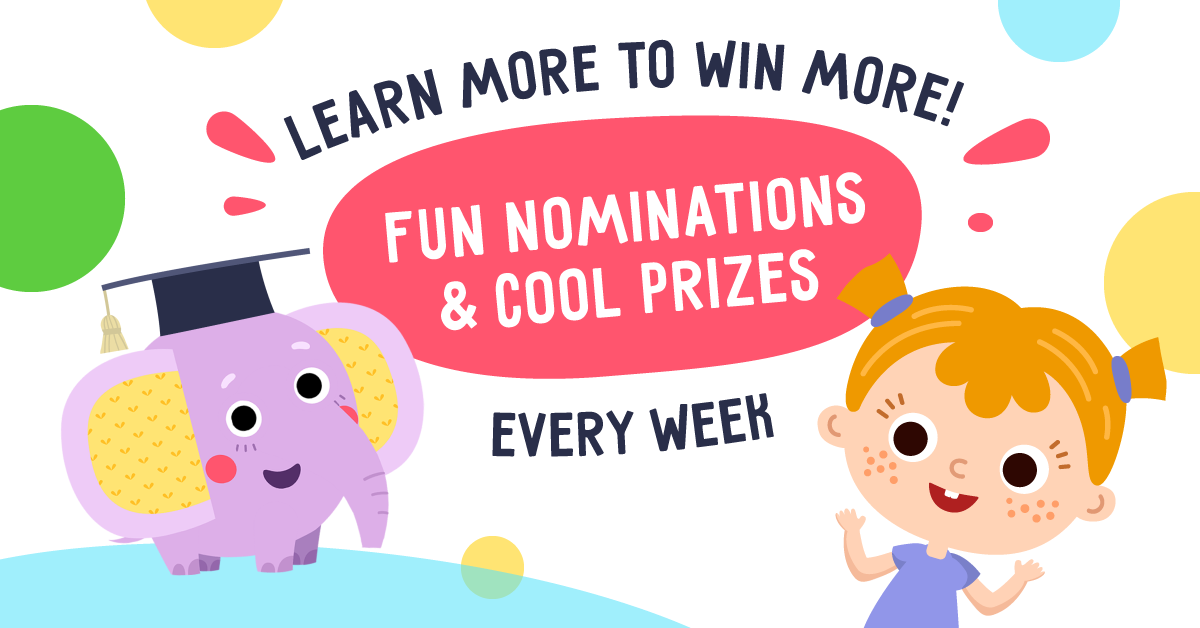Word identification Reading Worksheets for Ages 3-7
5 filtered results
-
From - To
Discover engaging Word Identification Reading Worksheets tailored for children ages 3 to 7. Our carefully crafted worksheets help young learners develop essential reading skills through fun and interactive activities. Focused on identifying words, these resources enhance vocabulary, promote phonemic awareness, and boost early literacy. Perfect for parents, teachers, and caregivers, our worksheets are colorful, age-appropriate, and designed to make learning enjoyable. With various exercises that cater to different learning styles, children will build confidence and proficiency in reading. Visit our page to access a wide array of printable worksheets that make word identification an exciting adventure for your little reader!
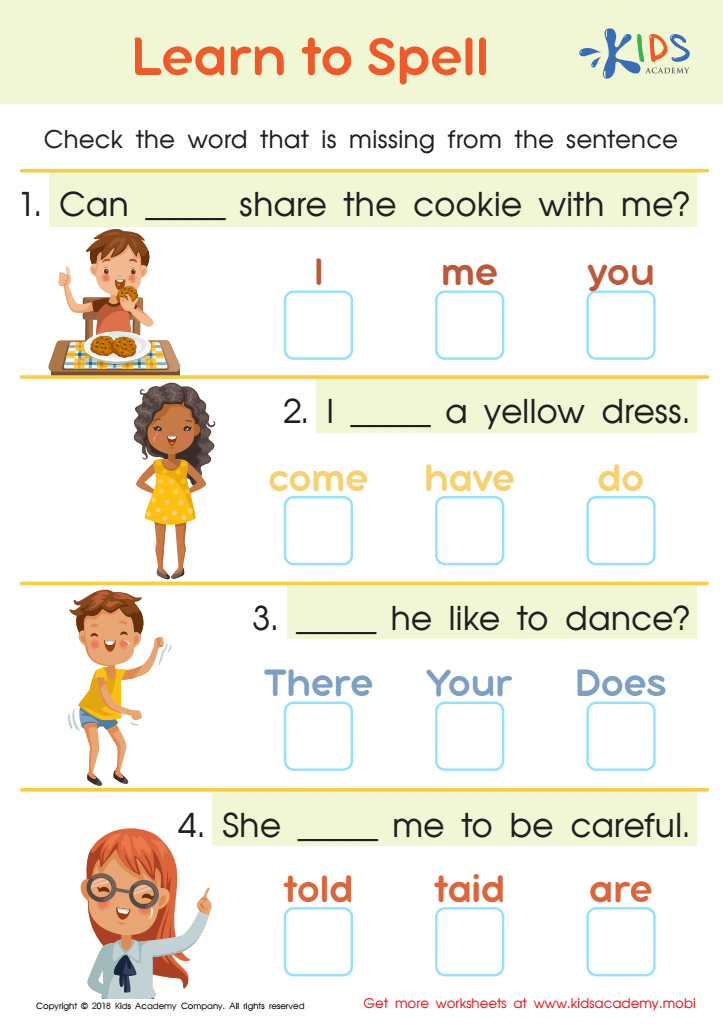

Learn to Spell Worksheet
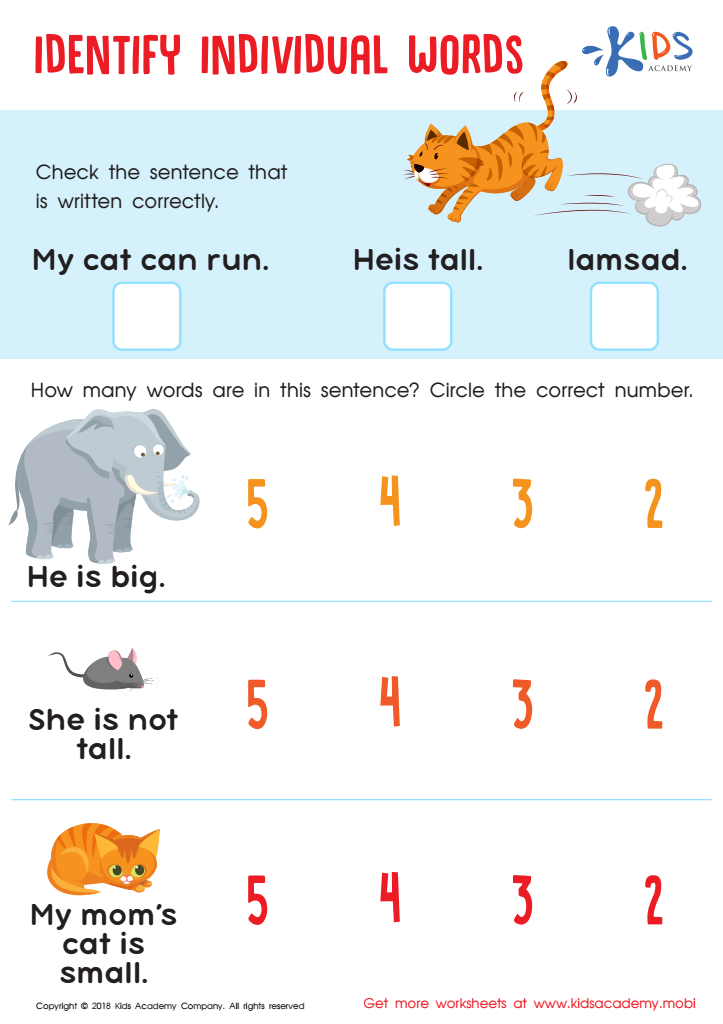

Identify Individual Words Worksheet
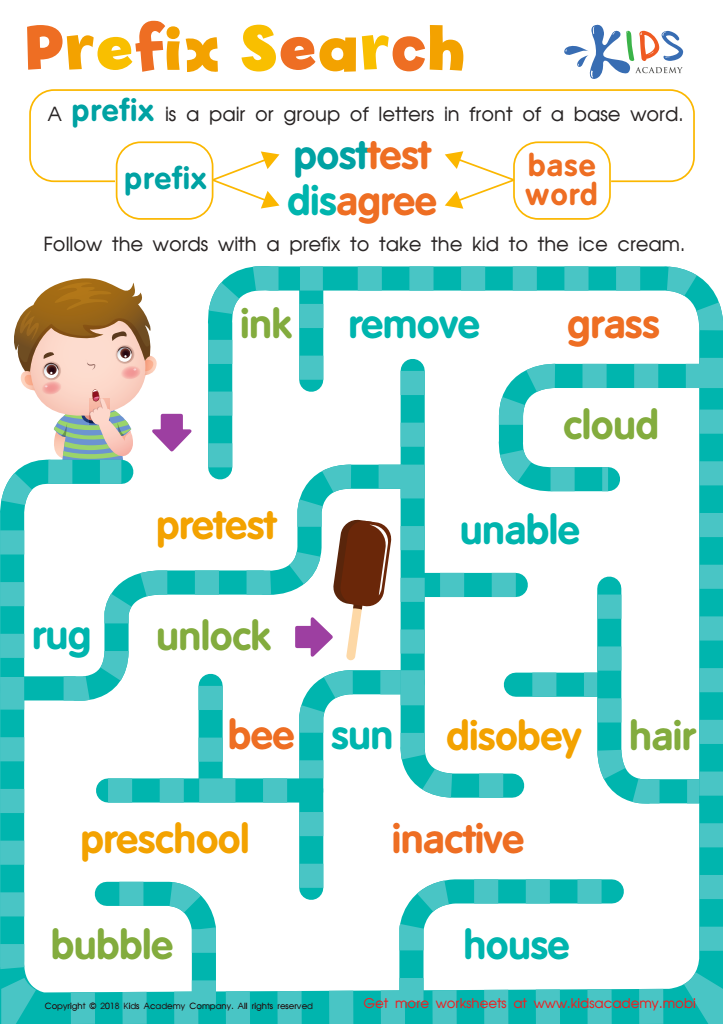

Reading: Prefix Search Worksheet


Phonics and Word Recognition: Assessment 1 Worksheet
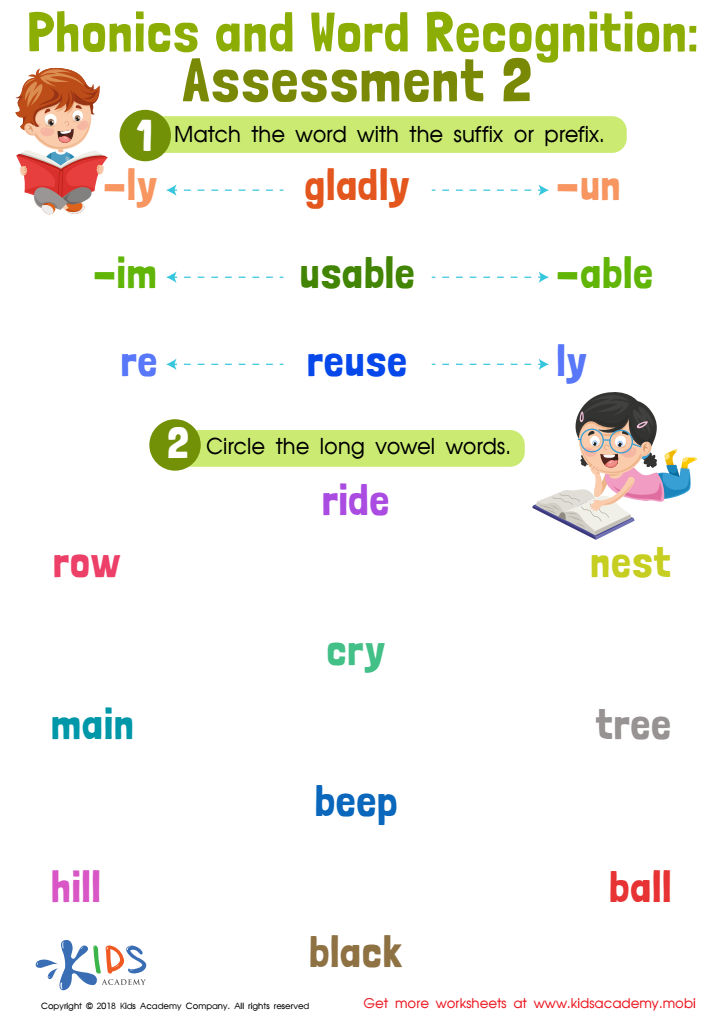

Phonics and Word Recognition: Assessment 2
Word identification is a critical skill for children aged 3 to 7 as it forms the foundation for successful reading and overall literacy development. For parents and teachers, understanding this concept is essential because early reading abilities are closely linked to later academic success. When children can identify words, they gain confidence, which motivates them to explore reading further.
At this age, children are beginning to decode written language, and effective word identification strategies help them recognize familiar words quickly, aiding comprehension. This skill not only contributes to a child's ability to read but also enhances their vocabulary acquisition, spelling skills, and critical thinking.
Moreover, by fostering word identification through playful activities and engaging materials, parents and educators can create positive and joyful learning experiences. This is crucial for shaping a lifelong love for reading. Additionally, early intervention in reading difficulties can prevent long-term academic struggles, making it vital for caregivers to prioritize literacy from a young age. Ultimately, promoting strong word identification skills helps children navigate the world of literature, communicate effectively, and empowers them to embark on their academic journeys with confidence and enthusiasm.

 Assign to My Students
Assign to My Students







